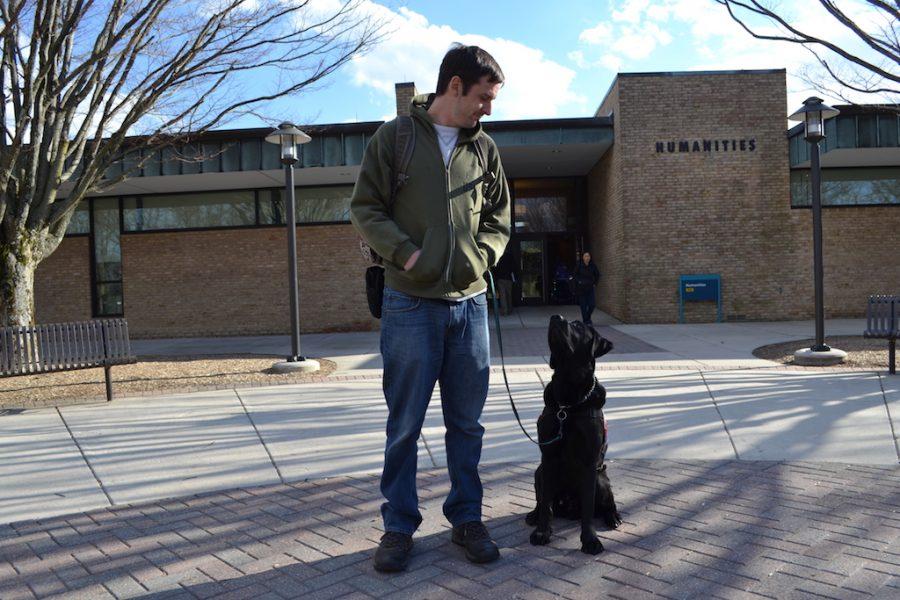Dogs at school help students
29-year-old AACC student Michael Garvey says his service dog helps him with balance, stability and emotional comfort.
March 31, 2017
After he left the Marines in 2013, Michael Garvey, a 29-year-old student at AACC and a U.S. Marine Corps veteran, suffered from post-traumatic stress disorder. He got into heavy pills when he came back home, popping almost 17 of them at a time to ease the pain of PTSD.
The one thing Garvey said brought him out of the pills was Liberty, the black Labrador service dog he has had for two and a half years.
Garvey said Liberty helps him with balance and stability, as his legs could give out because of a wound to his hip, which he got during service. Primarily, though, Garvey said his dog helps him with comfort because of his anxiety and depression.
Garvey got his service dog for free from Puppies Behind Bars, a New York City business that trains dogs in prisons and then gives them to wounded war veterans.
“He’s my best friend,” Garvey said. “He makes me feel comfortable out and about [so I am] not having to worry about ‘bombs’ on the side of the road.”
Garvey said with PTSD he can sometimes worry about his experiences in the war haunting him in his daily life.
Garvey explained he brings Liberty to most places without difficulty. In the future, he said, he hopes he will not need Liberty.
Denise Portis, an adjunct psychology professor at AACC, said her service dog, Milo, helps her with Meniere’s disease, a disorder that affects the inner ear and causes hearing and balance loss.
Milo helps Portis by picking things up for her, opening and closing doors and dishwashers and helping to keep her balance.
“Before I had a service dog, when I dropped something I had to ask someone, ‘Do you mind picking that up for me?’” Portis said. ”Or risk getting it myself and passing out. … It provides a level of independence.”
Portis explained she got Milo from Fidos for Freedom, a non-profit organization in Laurel. Fidos for Freedom aims to increase the independence of people with hearing and mobility problems through service dogs.
Portis said she has seen eight service dogs on campus.
Service animals are allowed anywhere on campus.












